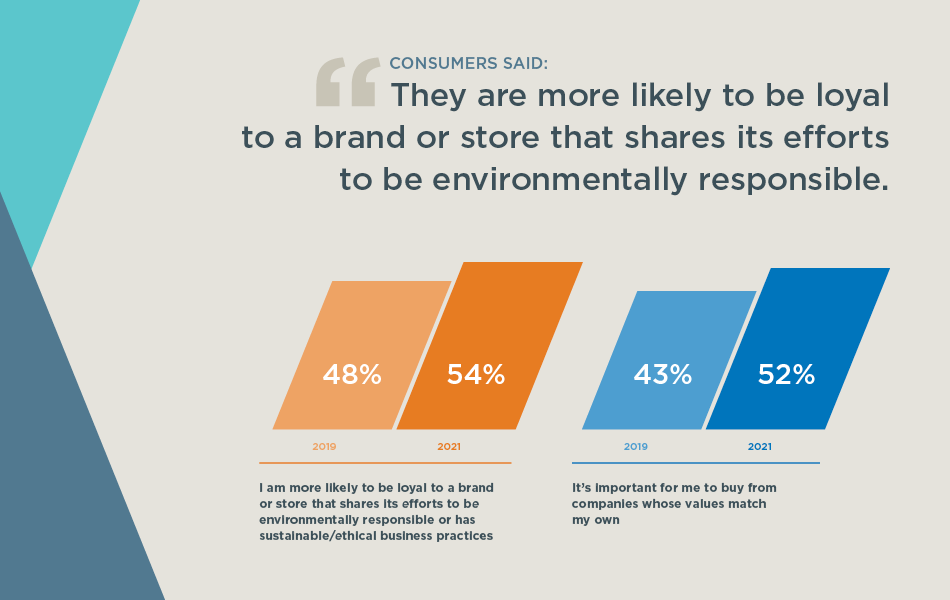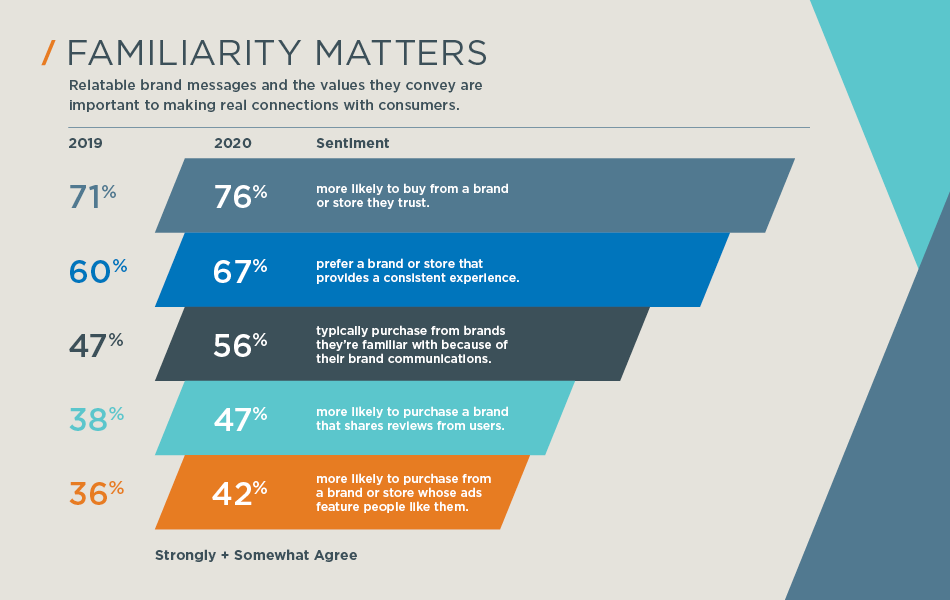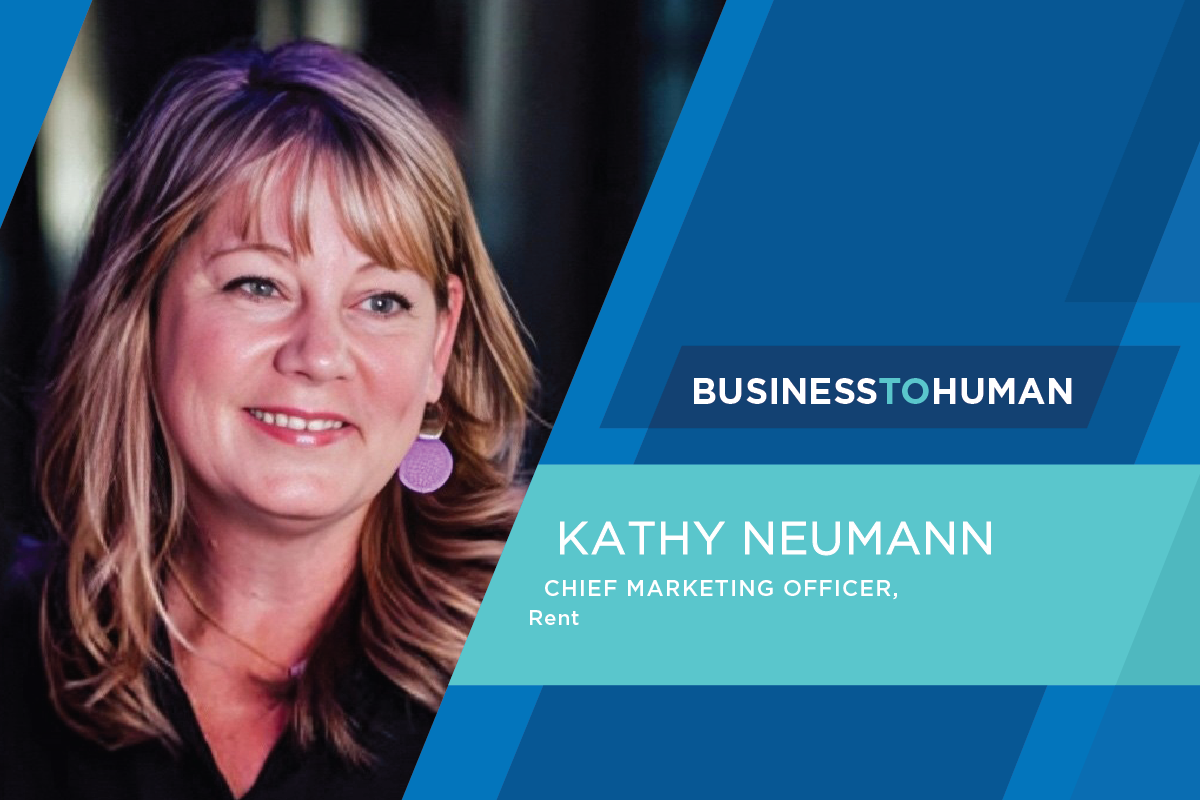Summary
- Consumers expect authentic social and corporate responsibility from brands.
- As people first, consumers are affected by the larger culture, which is demanding change on long-standing issues including diversity and environmental sustainability.
- Read on for insights to help make your brand messaging more relatable.
The socially conscious consumer segment has been around for decades, becoming a catalyst for change. However, this is no longer a niche market. It represents more and more of what mainstream consumers expect from brands. And this trend only accelerated during the pandemic, as revealed in our 2021 Consumer Intel Report entitled “The Cautious Return to a New World.”
The socially conscious consumer makes mindful purchase decisions, deliberately buying ethical and environmentally friendly products. They vote for their values with their wallet. In fact, 45% said they are willing to pay more for sustainable products.
From activism to consumerism
Environmental concerns have long been an issue for consumers. And they remain the top consideration for socially conscious consumers. Aside from sustainability, consumers also care about diversity and inclusivity, gender equality, poverty eradication, support for small businesses, animal protection and more. And they want to buy from brands that reflect the same values and support the same causes.

Consumers also exert power as activists, making their preferences known by their purchase decisions. This compels companies to change and to take a stand. Over the years, this social activism has given rise to specific demands for corporate social responsibility, sustainability, ethical consumerism, fair trade and conscious capitalism.
And these social movements have taken greater power through social media. As more people become more aware of the issues, brands are even more influenced — and even pressured — to act.
Consumers are people first
Companies think in terms of consumers, shoppers, unique selling propositions, product positioning and brand personality. These have their place and can be helpful. In fact, price, quality and value remain critical factors for purchasing decisions. However, consumers also factor in their social, health and environmental concerns in the equation.
That is because buying or consuming is only one part of who they are as humans. They do want good value for their money. But they also care about values. Fifty-two percent of respondents said it’s important for them to buy from companies whose values match theirs. That’s a huge spike from 43% in 2019.
And the values they care about now are increasingly about the impact they make on their family, community, country and planet. And they consider these values in making decisions about where they live, who they work for and where they buy from.
Meeting people where they are
People prefer to have familiarity, consistency and connection with the brands they buy from. They are wary of marketing messages that only play to base desires. And they are distrustful of companies that project a positive image, only to find out they are unethical in sourcing or production. They dislike greenwashing, misleading marketing claims that products or business practices are sustainable when they are not.

Companies need to be consistent and transparent to win their trust and loyalty. In our 2021 Consumer Intel Report, 76% of survey respondents said they are more likely to buy from a brand or store they trust, up from 71% in 2019. Twenty-one percent plan their in-store shopping with recommendations from family and friends. And 47% are more likely to purchase a brand that shares reviews from users.
Of course, brands need to be authentic and relatable to connect with their customers. That means their marketing messages should reflect their market. Forty-two percent are more likely to purchase from a brand or store whose ads feature people like them.
Massive changes and social shifts
The past year has been marked by unrest and tragedy. From racial injustice and climate change to pandemic deaths and the loss of jobs. People have become more sensitive about what they buy and who they buy from.
Fifty-four percent of consumers are more likely to be loyal to a brand or store that shares its efforts to be environmentally responsible or has sustainable and ethical business practices. And this figure is highest among millennials, parents, and millennial parents, with 72% saying so.
There is also strong support for local small businesses, many of which have been severely affected by the lockdown. Sixty-one percent of consumers prefer to shop at local, neighborhood stores.
The cost-conscious consumer
Yes, socially conscious consumers are willing to pay more for sustainable products from ethical and responsible companies. And with the slow reopening of the economy, people are becoming more optimistic, even excited to spend more. Some 18% of consumers are looking for more opportunities to treat themselves and others in their household.
However, many others have been affected financially by the pandemic. Seventy percent of those whose income was impacted in 2020 expect this to remain the case in 2021. As a result, 72% increased their saving behaviors during COVID, with 82% planning to continue to do the same in 2021. Even if they care as much about ethical, sustainable, and conscious consumption, the reality forces them to prioritize price.
As such, brands need to be sensitive in their messaging and promotions. They should strike a balance between addressing the preferences of optimistic, socially conscious consumers and the financial needs of their cautious, budget-conscious customers.
Learn more about today’s consumers
The socially conscious consumer is just one of the major themes that emerged from our 2021 Consumer Intel Report. It covers the shopping habits, home lives, work lives and financial situations of consumers, and how COVID has impacted it all. It also reveals the cautious optimism many share as we look forward to a post-pandemic world.
To learn more about conscious consumption and other trends, and how marketers should respond, download the full report.



